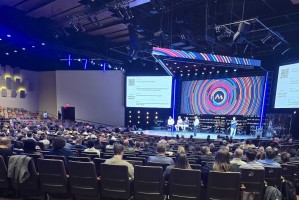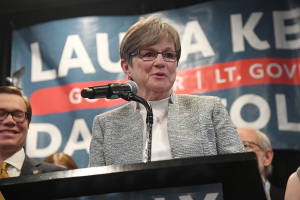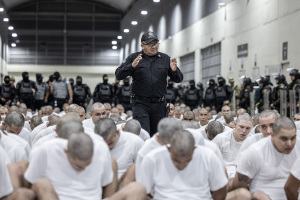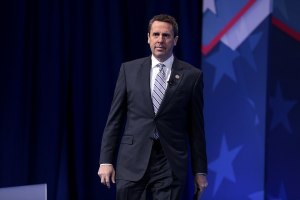UMC bishops support assault weapons ban, denounce ‘idolatry of guns’
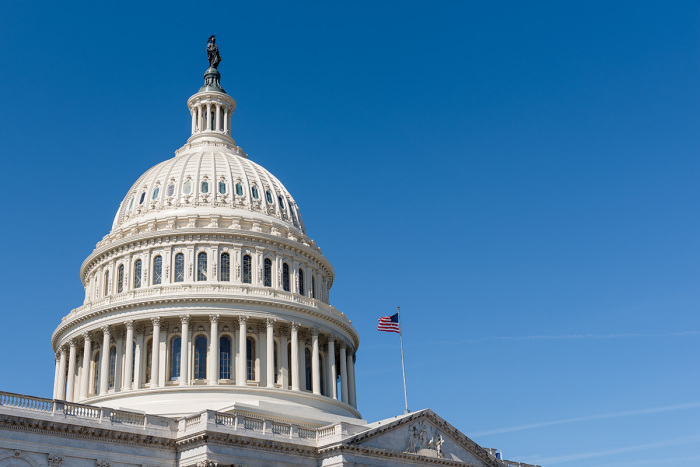
The United Methodist Church Council of Bishops has denounced what they call the “idolatry of guns,” demanding that measures be taken to curb gun violence in the United States, including restoring a ban on so-called assault weapons.
Late last month, the bishops unanimously approved an open letter titled “A Call to Prayer and Action in Response to Gun Violence,” which was officially released to the UMC last week.
The bishops stated in the letter that they felt compelled to “respond to the devastation and disruption due to gun violence,” both in the United States and abroad.
“In 2021 and 2022, 43 million more guns were sold in the United States, in addition to the 400 million guns already owned. As of June 2022, the United States has experienced over 300 mass shootings in this year alone,” they stated.
“Gun violence is more than a U.S. problem. Across the globe, 44% of all homicides involve guns. According to Amnesty International, 2,000 people are injured every day by gun shots and more than 500 of them die.”
The bishops then called for prayer through the month of September on the issue, labeling it “a call to action for all to weep with those who weep and demand, insist on, and push for positive change from our elected officials.”
The UMC leadership stated that “we must reject the idolatry of guns and the distorted attachment to our right to own guns without safeguards for the communities of the world.”
“This call to prayer is not a shallow request but one that firmly believes that the collective prayers of God’s people will keep this issue in the forefront of our consciousness and guide our intentional discernment of the action needed to bring about change,” they continued.
“We support the ban on assault weapons and urge Church and government support for communities affected by the trauma of gun violence. We are committed to sharing Christ centered compassion as we walk alongside those who have been victims of gun violence.”
The UMC General Board of Church and Society, which advocates for assorted UMC positions, recently came out in favor of proposed legislation to ban certain types of guns and ammunition.
Known as Senate Bill 736, the measure defined assault weapons as including semiautomatic pistols, semiautomatic rifles with magazines that hold more than 10 rounds, and other rapid-fire guns.
In response to recent wave of mass shootings, some have called for Congress to pass a firearms ban comparable to the federal ban that was in effect from 1994-2004.
“We can’t and won’t prevent every tragedy, but we know they work and have positive impact,” said President Joe Biden in a speech back in May, right after an 18-year-old entered an elementary school in Texas and opened fire, killing 19 children and one teacher before being shot dead.
“When we passed the assault weapons ban [in 1994], mass shootings went down. When the law expired, mass shootings tripled. … What in God’s name do you need an assault weapon for, except to kill someone?”
In 2004, shortly after the federal assault weapons ban expired, researcher Christopher S. Koper authored a report which found that the impact of the ban on gun violence was “mixed.”
“Because the ban has not yet reduced the use of [large capacity magazine guns] in crime, we cannot clearly credit the ban with any of the nation’s recent drop in gun violence,” said the report.
“However, the ban’s exemption of millions of pre-ban [assault weapons] and LCMs ensured that the effects of the law would occur only gradually. Those effects are still unfolding and may not be fully felt for several years into the future, particularly if foreign, pre-ban LCMs continue to be imported into the U.S. in large numbers.”
Last year, a study from Northwestern University’s Feinberg School of Medicine concluded that the 1994 ban may have prevented as many as 11 mass shootings and would have prevented as many as 30 mass shootings if it had remained in effect.


















